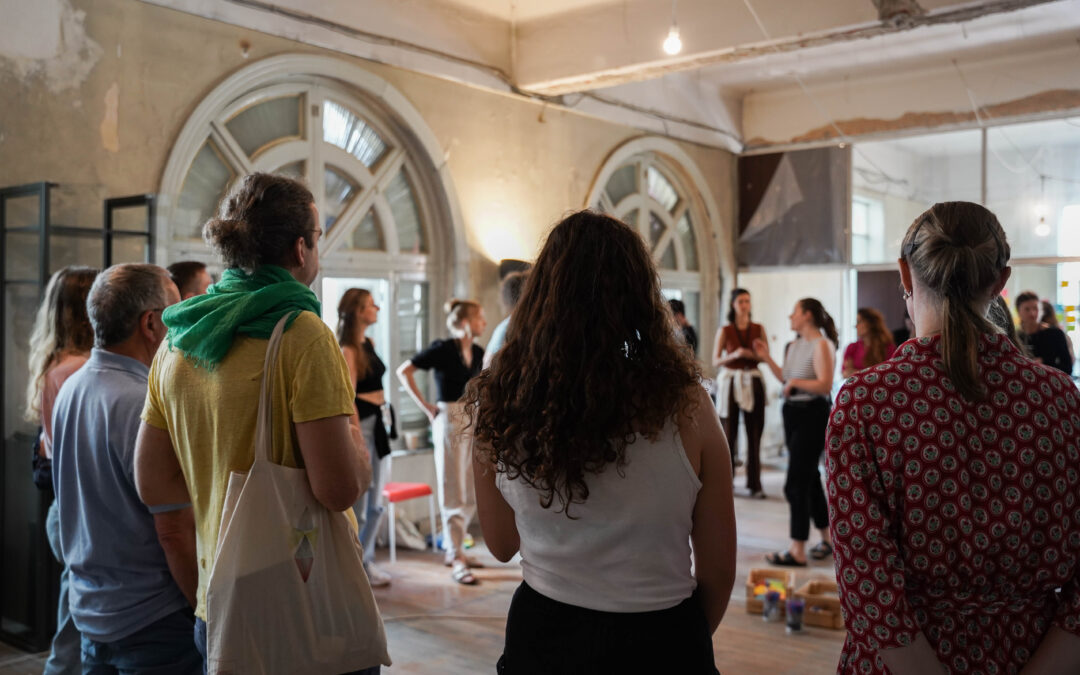In a highly successful speed-dating event at Impact Hub Athens, innovators from our network were paired with marketing specialists. This collaboration provided valuable assistance in tackling challenges faced by their startups. One of those experts, Rineta Mitsi, Corporate Affairs and Communication Director at the Goody’s-Everest Group, discusses how sustainability can transform businesses and sheds light on how this leader in the Greek hospitality industry integrates sustainability not just as a policy but as a core ethos shaping every aspect of its operations.
Not just a technique…
In a world where businesses are becoming increasingly conscious of their environmental footprint, sustainability has transcended beyond being a mere buzzword to become a central strategy. But sustainability is not just a technique, but a way of life for businesses. We explore its role as a pathway to innovation and the critical part marketing plays in promoting sustainability.
“Sustainability is not something you can do as a technique occasionally, you either do it or you don’t. So it starts from the top and goes down to everything” reflects Rineta. This is the essence of sustainability in business – it’s a comprehensive approach, not a one-off tactic. It’s about embedding sustainable practices into the very fabric of a company’s operations, impacting everything from supply chain management to customer relations. “Once you choose the principles of sustainability as a path for development, it gradually becomes your central strategy. Therefore, it affects the way you do everything, not just marketing, but also: how you are structured, how you manage your value chain, which suppliers you choose, and even which customers you target.”
Sustainability as a Way of Life
Sustainability, when adopted, transforms a company’s identity. It’s a commitment that extends beyond environmental concerns, encompassing social responsibility and economic viability. A sustainable business model not only minimizes its impact on the environment but also operates transparently and ethically, contributing positively to its community.
Honesty is the way forward according to Mrs. Mitsi “sometimes you are forced to reveal your brand’s weaknesses. Because you have to admit that you have an environmental footprint that needs to be managed. Brands are not used to coming out and saying “I have an environmental footprint”. We usually talk about our strengths.” There is a need for organizations to be transparent, to be brave enough to admit that they have made mistakes, and to develop new processes that will embrace sustainability as the way to move forward.
This holistic approach can be seen in initiatives taken by Goody’s-Everest like recycling coffee waste to create fertilizer for farmers, as well as partnering with companies that follow the principles of the circular economy in order to use sustainable materials in their stores. Such actions reflect a deeper understanding of sustainability as a lifestyle, influencing not just what a company does, but how it thinks and operates.
A Pathway to Innovation
Sustainability is not only a moral imperative but a catalyst for innovation. The drive for cleaner energy and reduced emissions has opened new markets and led to the development of groundbreaking products.
“Sustainability is a lever of innovation. Because when you start to integrate it into your way of operation, you find new ways to do things. You find new products, and new markets. So this helps you innovate. The need we have, for example, for clean energy, to reduce emissions, has opened up innovations like electromobility, and thousands of other things we do. Soon we will have electric planes. All this has emerged from the need for businesses to be more sustainable” Rineta says.
Businesses committed to sustainable practices often find themselves at the forefront of innovation. The pursuit of clean energy has sparked numerous advancements across various sectors, such as revolutionizing the way we generate, store, and use energy. Embracing sustainability means embracing a mindset of continual improvement and innovation, constantly seeking better, more efficient, and more responsible ways of doing business.
The role of marketing in promoting sustainability
In the realm of sustainability, marketing plays a pivotal role. It’s about communicating a company’s commitment to sustainability, not just as a selling point, but as an integral part of its identity. This approach requires authenticity and transparency, as consumers increasingly seek brands that align with their values. Marketing sustainability effectively means telling a story that resonates, one that goes beyond the product to the very purpose of the company. It’s about showing, not just telling, how sustainability is woven into every decision and action.
Sustainability in business is not just a route to compliance or a marketing strategy; it is a fundamental shift in how companies operate and perceive their role in the world. As eloquently stated in the interview, “we will be the first to do many things but we don’t want to be alone because sustainability is not a competitive feature of a product, an institution, we are all together in this or no one will achieve anything”. This sentiment captures the essence of sustainability in business – it’s a collective journey towards a more responsible, ethical, and sustainable future.



